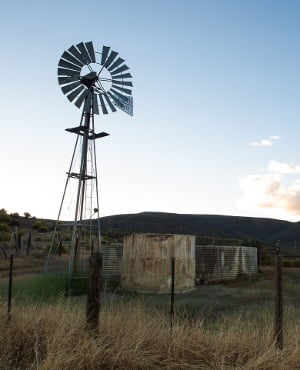The Land and Agricultural Development Bank is crucial to agriculture and should be given the chance to develop its position on expropriation without compensation, an investment and transformation expert has said.
Ian Matthews, head of business development at Bravura, told Fin24 on Thursday that the Land Bank should also have the opportunity to quantify potential credit impairments under various scenarios.
Bravura is an independent investment banking firm that – among other things – specialises in transformation solutions.
Earlier this week, the Land Bank released its Annual Report, saying expropriation without compensation could bankrupt it by triggering a domino effect of default mechanisms, meaning R41 billion in debt would be payable immediately.
The bank also suggested that the current land reform programme should be improved before being implemented.
In Matthews' view, the Land Bank's sustainability is critical, as a "major financier of South Africa's agricultural sector".
Matthews says it would be "foolhardy" for the government to act hastily in implementing expropriation without compensation, given the Land Bank's promising financials for 2018.
Any loss of investment appetite in the bank, risk to sustainability or funding at an added risk premium would be significant, he believes.
The Department of Agriculture, Forestry and Fisheries (DAFF) estimates the total value of agricultural debt to be R158.3bn as at December 2017, of which Land Bank finances approximately 29% and commercial banks another 61%.
It also records that interest paid by farmers to banks and other financiers during the 12 months up to June 30, 2017 was estimated at R8.8bn.
The Land Bank is currently experiencing growing confidence from the international investment market, says Matthews, and its financial report shows "distinct balance sheet strengths".
"Despite a downgrade of the Land Bank’s global scale rating from Baa2.za to Baa3.za in line with South Africa’s own investment grading, Moody’s Investor Services upheld the national scale rating of the Land Bank at Aa1.za, with a stable outlook, which is an indication that the Bank’s risk profile has improved."
Positive signals
The Land Bank largely depends on funding sourced from capital and debt markets and depends on commercial investors to fund its commercial and development loan activities.
Its key funding objectives for 2018 are to reduce dependency on short-term investments and its reliance on a small number of funders, says Matthews. The funding strategy aims to raise funds from a wider spectrum of investors including longer-term multi-lateral development funding.
The Land Bank raises various types of funds, either through bonds raised pursuant to its listed DMTN programme, short-term commercial paper instruments, or bilateral funding agreements to match the Bank’s requirements.
It has also entered into funding arrangements with multi-lateral investors such as AfDB, World Bank, the German Development Bank (KfW) and the European Investment Bank (EIB).
Matthews believes that passing intensive due diligence processes and being granted funding for up to 12 years without providing guarantees was a positive signal – important, in his view, given that the Land Bank is mandated to play a pivotal role in growth and inclusive transformation in the agricultural sector.
"The Land Bank loan book indicates that funding for transformative purposes has increased to R5.5 billion in FY2018 from R4.9 billion in the previous year," he says.
"In order to secure the KfW and IEB loans, the Bank was subject to intensive due diligence processes, which were so successfully passed that the result was being granted funding for up to 12 years without providing guarantees," he says. "There is a commitment to invest equity in strong agricultural companies with the intent to enable transfer shareholding to black investors on an appropriate basis."
The Land Bank has argued, in its financial report, that as part of land reform, expropriation with or without compensation has the potential to benefit the country significantly, if it is done carefully.
However, the Bank has also called for improving the existing land reform programme, and that that more land must be brought into production.
* Sign up to Fin24's top news in your inbox: SUBSCRIBE TO FIN24 NEWSLETTER
Follow Fin24 on Twitter and Facebook. 24.com encourages commentary submitted via MyNews24. Contributions of 200 words or more will be considered for publication.





















